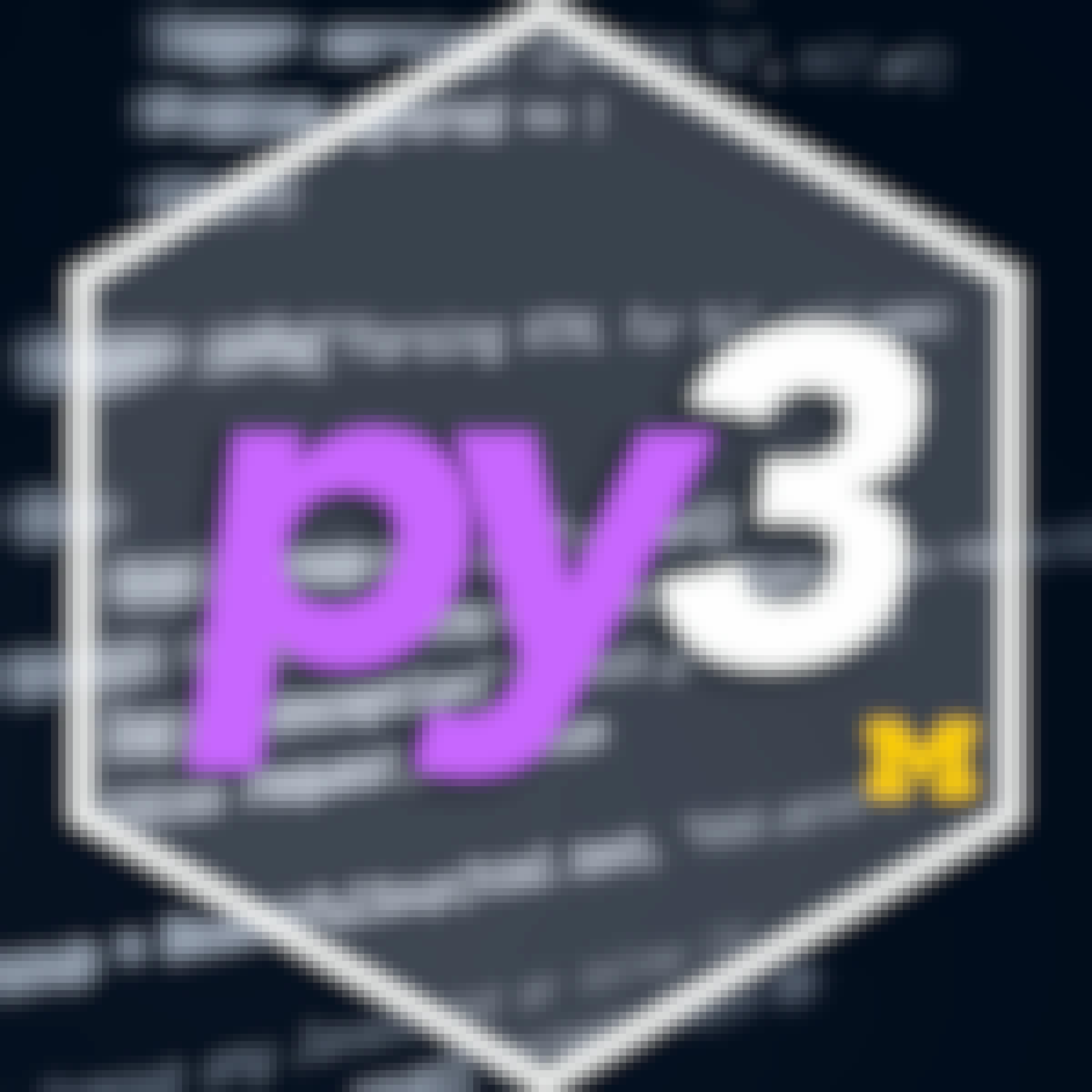Filter by
SubjectRequired
LanguageRequired
The language used throughout the course, in both instruction and assessments.
Learning ProductRequired
LevelRequired
DurationRequired
SkillsRequired
SubtitlesRequired
EducatorRequired
Results for "ipython"

 Status: Free Trial
Status: Free TrialSkills you'll gain: Pandas (Python Package), Data Analysis, Exploratory Data Analysis, Data Modeling, Data Manipulation, Jupyter, Data Processing, Matplotlib, Programming Principles, Data Cleansing, Data Visualization Software, Python Programming, Scripting
 Status: Free Trial
Status: Free TrialSkills you'll gain: Jupyter, Automation, Web Scraping, Python Programming, Data Manipulation, Data Import/Export, Scripting, Data Structures, Data Processing, Data Collection, Application Programming Interface (API), Pandas (Python Package), Programming Principles, NumPy, Object Oriented Programming (OOP), Computer Programming


DeepLearning.AI
Skills you'll gain: Large Language Modeling, Prompt Engineering, Artificial Intelligence, Jupyter, Python Programming, Data Analysis, ChatGPT, Application Development, Generative AI, Scripting, Automation, Computer Programming, Application Programming Interface (API)
 Status: Free Trial
Status: Free Trial
Rice University
Skills you'll gain: Data Visualization Software, Plot (Graphics), Package and Software Management, Python Programming, Programming Principles, Data Processing, Data Mapping, Data Manipulation, Software Installation, Development Environment, Data Structures, File Management, Scripting, Data Storage, Data Import/Export, Program Development, Data Integration, Data Analysis, Computer Programming, Integrated Development Environments
 Status: Free Trial
Status: Free Trial
Google
Skills you'll gain: Object Oriented Programming (OOP), Data Analysis, Data Structures, Jupyter, Python Programming, NumPy, Pandas (Python Package), Programming Principles, Scripting, Data Manipulation, Algorithms


The Hong Kong University of Science and Technology
Skills you'll gain: Statistical Inference, Statistical Methods, Pandas (Python Package), Probability & Statistics, Risk Analysis, Financial Trading, Financial Data, Data Manipulation, Statistical Analysis, Regression Analysis, Financial Analysis, Jupyter, Financial Modeling


Nanjing University
Skills you'll gain: Data Processing, Data Mining, Data Structures, Data Presentation, Object Oriented Programming (OOP), Web Scraping, Data Analysis, Python Programming, Pandas (Python Package), NumPy, Data Visualization, Data Import/Export, Data Manipulation, Matplotlib, User Interface (UI) Design
 Status: Free Trial
Status: Free Trial
École Polytechnique Fédérale de Lausanne
Skills you'll gain: Digital Communications, Image Analysis, Telecommunications, Electrical Engineering, Electrical and Computer Engineering, Embedded Systems, Electronic Systems, Electronics Engineering, Computer Engineering, Engineering Calculations, Electronics, Programming Principles, Engineering Analysis, Numerical Analysis, Advanced Mathematics, Algorithms, Linear Algebra, Mathematical Modeling, Calculus, Applied Mathematics
 Status: Free Trial
Status: Free TrialSkills you'll gain: Bash (Scripting Language), Unit Testing, Scripting, Unix Shell, Shell Script, Linux Commands, Test Driven Development (TDD), Unix Commands, Unix, Scripting Languages, Development Environment, Operating Systems, Command-Line Interface, File Management, OS Process Management, Automation, Debugging, Python Programming
 Status: Free Trial
Status: Free Trial
Universidad Nacional Autónoma de México
Skills you'll gain: Exploratory Data Analysis, Matplotlib, Pandas (Python Package), Extract, Transform, Load, Data Analysis, NumPy, Package and Software Management, Time Series Analysis and Forecasting, Data Visualization Software, Data Science, Python Programming, Jupyter, Graphing, Data Import/Export, Data Manipulation, Scripting, Software Installation, Computational Thinking, Development Environment, Mac OS
 Status: Free Trial
Status: Free Trial
University of Michigan
Skills you'll gain: Debugging, Programming Principles, Python Programming, Data Structures, Scripting Languages, Computer Programming, Pseudocode, Computer Graphics


Pontificia Universidad Católica de Chile
Skills you'll gain: Python Programming, Data Structures, Computer Programming, Program Development, Application Development, Algorithms, File Management
In summary, here are 10 of our most popular ipython courses
- Python Data Analytics: Meta
- Python for Data Science, AI & Development: IBM
- AI Python for Beginners: DeepLearning.AI
- Introduction to Scripting in Python: Rice University
- Get Started with Python: Google
- Python and Statistics for Financial Analysis: The Hong Kong University of Science and Technology
- Data Processing Using Python: Nanjing University
- Digital Signal Processing: École Polytechnique Fédérale de Lausanne
- Using Python to Interact with the Operating System: Google
- Python: de cero a analista de datos: Universidad Nacional Autónoma de México












